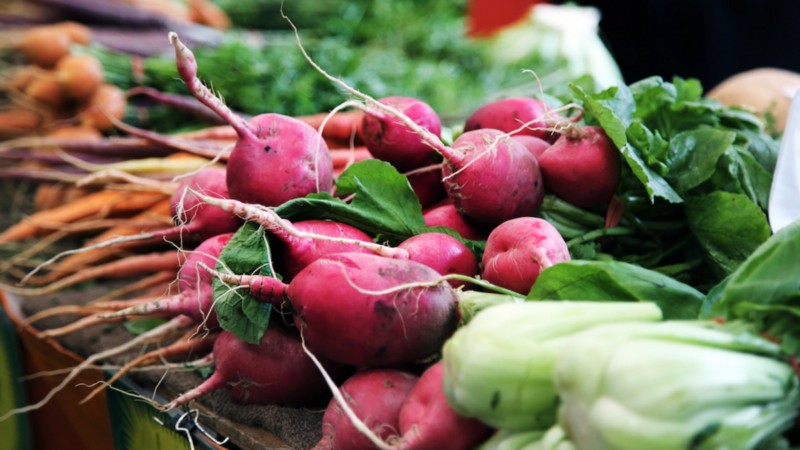
The planet deserves our love and gratitude every day. Earth Day falls in April, and we’re spending the entire month focusing on how we can better connect with Mother Earth.
Today, Registered Dietitian and Splendid Spoon Ambassador Eliza Whetzel shares her tips for eating in sync with the seasons, and why it’s so important for your body and the planet to do so!
There’s nothing better than a juicy peach on a hot summer day, a crunchy apple as the leaves begin to fall, warming winter squash during a snowstorm, or the first fresh asparagus of spring!
You may be eating non-GMO, organic, and/or vegan, and feel overwhelmed by these monikers, but eating seasonally may be the next (and perhaps the most important) step in your health journey.
What does this mean?
Eating seasonally means embracing natural diversity and eating what the land in our region provides during each season. On average, fruits and veggies travel 1,500 miles to get from farms to us — this means a lot of pollution, time and money. Not to mention the decreased nutrient density of produce when they take these long trips.
Why is it good for me?
In-season produce is not only more flavorful than fruits and veggies shipped across the country, it is actually nutritionally superior. Most shipped produce is picked before it’s ripe and at its nutritional peak, allowing it to survive long periods of travel time. However, this decreases the nutritional value. Eating in season provides the most nutrients and most taste — it’s a win-win.
Eating with the seasons also brings natural variety to your diet, providing a wide array of vitamins and minerals, as well as a myriad of tastes. We tend to be creatures of habit, but breaking out of this mold can lead to increased satiety and nutrition, and less boredom!
Eating seasonally may also save you money! You’re getting the healthiest, tastiest food for a lower price, as it’s more efficient for farmers and distributors to get it to you.
Why is it good for the planet?
Eating seasonally supports sustainable agricultural practices and local farmers. Buying local means that the foods endure less travel, processing, and packaging than mega-farmed foods. More seasonal eating means less pollution due to transportation, less refrigeration, fewer hothouses (a greenhouse which is heated through artificial sources), and less irradiation (which leads to nutrient degradation) of overseas transported foods.
How do I shop with the seasons?
These are my tips for foolproof seasonal eating:
- Shop at your local farmer’s market (use this app to find one near you) or co-op. In NYC, I love Union Square Farmer’s Market, but check out GrowNYC for one near you!
- To tell me what’s in season, I love using Seasons or Harvest, and Seasonal Food Guides like this one.
- Join a CSA to receive monthly or weekly deliveries of farm-fresh, in-season veggies. Find a CSA in your area here.
- Choose restaurants that support local and seasonal agriculture. You can find a guide to them here.
- Freeze it! Create your own frozen produce supplies by freezing in-season produce to enjoy at a later time. Freezing produce when it’s at its peak locks-in all the vitamins, nutrients, and flavors, so you can still benefit from them when you eat them at a later date!
